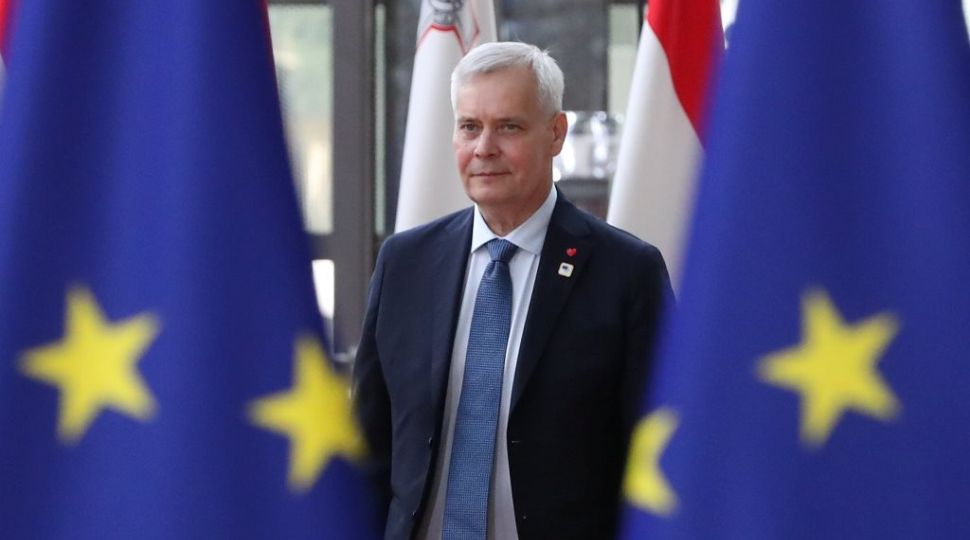Finland's Presidency of the Council of the European Union

The environment and climate ministries, as well as home affairs, are also managed by Green politicians. They will prepare or chair the Council meetings in its various configurations in specific policy areas. Therefore, an ambitious climate agenda and a follow-up to the discussion on common migration policy is expected, despite the recent lack of agreement on the common asylum system’s reform. The Social Democrats and the Greens are also the biggest advocates on the domestic political scene of closer EU cooperation in the field of defence and security policy.
There is domestic political consensus—with the exception of the nationalist Finns Party—as to the main direction of Finland’s European policy and views on the EU’s future: the country rejects deepening European integration towards centralised governance and federalisation. It supports the gradual completion of the Single Market and expects the EU to raise its profile as a global leader in climate policy. It perceives the EU as a community of values and notes the need of Member States to more closely adhere to them.
Finland took over the presidency at the beginning of the new five-year EU institutional cycle. Due to the transition period and related slowdown in the work of the European Commission, the Council will have less legislative work during this presidency. In addition, it will be the first of the presidencies to integrate the Council’s work into the new strategic agenda for the EU for 2019-2024, adopted by the European Council (EC) in June. It focuses on protecting EU citizens and freedoms, the global competitiveness of the EU economy, combating climate change, and promoting EU interests and values on the global level, including supporting multilateral institutions and instruments. The presidency calendar, however, will be dominated by a few current issues of great importance. It has ambitions to complete the negotiations of the Multiannual Financial Framework (MFF) for 2021–2027 by the end of this year and agree on the most important elements of the EU Long-Term Climate Strategy (LTCS). Although the presidency does not intend to devote special attention, at the expense of these issues, to the UK leaving the EU, Brexit, now set for October, will also affect this process.
The Finnish presidency also coincides with the strengthening of the Greens in the European Parliament. Their group has never been as large as after the recent European elections. In the Council, in turn, after the recent parliamentary elections in Spain, Finland, and Denmark, leftist parties have stronger representation. The Finnish presidency can further reinforce their voice, for example, on climate protection. In turn, the appointment of Christine Lagarde as president of the European Central Bank—and the defeat of Finnish candidates Olli Rehn and Erkki Liikanen in the race for this position—may make it difficult for the presidency to shape the monetary union in line with the northern Member States' vision. They want, among others, a banking union that reduces risks in the banking sector and follows restrictive fiscal policy.
Priorities
Finland has developed its presidency programme around four priorities whose purpose is to provide the EU with ecologically and socially sustainable economic growth. In the perception of Finland, only an EU that protects the cornerstones of European integration—the rule of law, democratic institutions, and human rights—is able to provide its citizens with security and prosperity and credibly defend the liberal international order. To this end, the presidency will restore the question of rule of law to the Council’s agenda. It supports linking the receipt of EU funds to respect for the rule of law, as proposed by the Commission. It also wants to start a discussion about developing new rule-of-law mechanisms to ensure its better protection. Moreover, Finland has announced the continuation of the procedure under Art. 7 of the Treaty on European Union (TEU) against Hungary. According to the ambassador of Finland to Hungary, Markku Virri, the presidency intends to move the procedure to the next stage, in which the Council will hear Hungary’s arguments. In the ambassador’s opinion, in Poland’s case, the presidency will wait with setting the date of a hearing for the subsequent rulings of the Court of Justice of the EU regarding the Polish judicial reform.
The presidency has set the goal of building the EU’s position as a global leader in climate action. It wants the EC to define by the end of 2019 the key elements of the LTCS. It will also continue to negotiate in the Council the issue of EU climate neutrality by 2050, despite no agreement on this at the June meeting of the EC. The presidency intends to work on the compatibility of the next MFF programmes with the objective of countering climate change, in particular in the fields of research and development, innovation, and agricultural policy.
The priority of a competitive and socially inclusive EU is closely linked to the presidency’s climate goals, which underline the role of the bioeconomy and circular economy in reducing greenhouse gas emissions and, at the same time, increasing EU competitiveness through the modernisation of industry. The presidency recognizes eliminating barriers to trade in digital services as key to stimulating economic growth. It also draws attention to the need to focus on the digitisation of EU economies and increase the EU’s technological potential. It advocates free trade with external partners based on common WTO rules. It will support the completion of eurozone reform. It also wants to make progress in strengthening the social pillar of the EU Single Market, in particular through common workers’ rights.
As part of the priority to strengthen the security of citizens, the presidency aims to raise spending on EU external action. It supports the implementation of the existing arrangements for deeper European cooperation on security and defence, including PESCO projects. Finland wants to play a significant role in this area. It also advocates enhancing EU-NATO cooperation, including in the field of military mobility and countering hybrid threats.
Conclusions for Poland
Finland will use its presidency to speed up discussions on the rule of law and work on a long-term EU climate strategy. Although it wants to move forward with the procedure under Art. 7 TEU against Hungary, it is unlikely that the case will go to the next step (addressing recommendations to the state) because of a lack of the necessary four-fifths majority. A renewed focus on the rule of law will have a negative impact on the situation of Poland, also covered by this procedure.
On the other hand, LTCS adoption is unlikely to take place by the end of 2019 because of discrepancies at this stage of negotiations among the Member States. However, its key elements can be defined. This may be supported by the strengthened left-wing forces in the Council. However, regardless of the pace of decision-making on the strategy, the EU has already set the direction for the transformation of the EU’s economy. This will encourage the Member States to adopt an attitude of compromise on climate goals.
Ambitions to increase competitiveness and improve the functioning of the EU Single Market are in the interest of Poland’s government, although strengthening the pillar of EU-wide social rights is not a priority; however, the latter is part of the EU strategic agenda and has strong support in the EU and therefore action should be expected in this area. In the field of security, the presidency’s plans align with Poland’s view, especially the need for the improvement of EU capabilities to combat hybrid and cyberthreats and better coordinate actions between the EU and NATO. The fact that Finland is not a NATO member, however, may result in less sensitivity to the issue of non-duplication of EU actions with Allied commitments.




